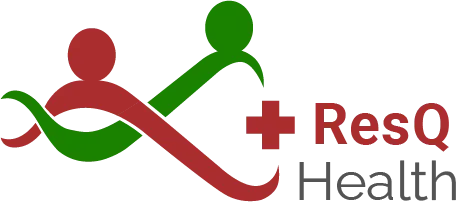
How to Address Common Challenges in Training Administration
Running a training program smoothly comes with its own set of challenges. From managing time and resources to keeping up with administrative duties, there’s plenty to juggle. Understanding these hurdles is the first step in finding effective solutions.
Trainers often find themselves balancing between teaching and administrative tasks. It can feel overwhelming managing schedules, resources, and communications all at once. But don't worry, addressing these challenges can lead to a more efficient and successful training environment.
By identifying common issues and adopting strategic solutions, training administrators can create a more organized and engaging experience for both trainers and learners. Let's explore the key challenges and discover practical ways to overcome them.
Identifying Key Challenges in Training Administration
Training administration has its fair share of challenges that trainers face every day. One of the most common hurdles is organizational issues. Keeping track of schedules, lesson plans, and student needs can become overwhelming if not handled properly. These organizational challenges often lead to stress and can disrupt the flow of training sessions.
Another major challenge is managing time and resources effectively. Trainers often juggle multiple tasks, and finding the balance between delivering effective instruction and handling administrative duties is crucial. Without a time management strategy, trainers can struggle to ensure smooth operations.
Balancing administrative tasks with instructional duties requires careful planning. Trainers must find ways to manage paperwork, scheduling, and communication without compromising the quality of instruction delivered to learners. Understanding these challenges helps in finding ways to overcome them, ensuring efficient training sessions.
Streamlining Scheduling and Resource Allocation
Efficient scheduling and resource allocation are key to overcoming administrative challenges. Effective scheduling techniques can greatly reduce stress and increase productivity. Planners and digital calendars help in creating a clear timeline for training sessions, meetings, and other essential activities. These tools help avoid overlapping tasks and ensure that nothing is left out.
Best practices for resource management include prioritizing tasks and allocating resources based on their importance. Developing a system to manage these resources ensures that both trainers and students have what they need without wasting time or materials. Sharing resources, when possible, can also cut costs and optimize usage.
Incorporating tools and technologies can simplify administrative tasks and make them more manageable. Platforms that allow for integrated scheduling, resource tracking, and communication provide a one-stop-shop for handling these tasks efficiently. Using these technologies fosters smoother processes and minimizes the chances of errors in management. Ensuring proper scheduling and resource allocation keeps the training program on track and effective.
Enhancing Communication and Collaboration
Strong communication and collaboration form the backbone of successful training programs. Establishing solid lines of communication with both staff and students helps keep everyone informed. Regular meetings, emails, and updates ensure that all team members are in sync. This synergy reduces misunderstandings and aligns the group with training goals.
Encouraging teamwork and collaboration among trainers is equally important. When trainers work together, they can share ideas and strategies beneficial to the program. Teamwork brings diverse perspectives and fosters a supportive environment where trainers can learn from each other. Joint brainstorming sessions and collaborative projects can enhance the learning experience for everyone involved.
Maintaining transparent communication channels is essential for trust and cooperation. Open forums, suggestion boxes, and regular feedback sessions allow trainers and students to express thoughts and ideas freely. Transparency helps avoid confusion and ensures that everyone feels comfortable sharing their perspectives. Effective communication and collaboration ultimately create a cohesive and dynamic training environment.
Utilizing Feedback and Data for Continued Improvement
Incorporating feedback and data collection into training is crucial for ongoing development. Gathering valuable data from training sessions helps trainers understand what works and what doesn't. Surveys, feedback forms, and observation sessions provide insights into the effectiveness of training techniques and materials.
Analyzing this data reveals improvement opportunities that may not be immediately obvious. Trainers can identify trends and patterns that indicate where adjustments are needed. This analysis allows them to fine-tune training methods, resources, and delivery styles to better suit learner needs.
Implementing changes based on feedback and data insights is the final step in this improvement cycle. Making informed adjustments driven by concrete data empowers trainers to enhance the training experience. This iterative process of gathering feedback, analyzing data, and making changes ensures that training sessions remain effective and relevant over time.
Conclusion
Effective training administration blends communication, collaboration, and data-driven improvement. By tackling key challenges, streamlining operations, enhancing communication, and utilizing feedback, trainers can deliver high-quality sessions. These aspects create a smoother and more structured learning experience, benefiting both trainers and students.
ResQ Health understands the importance of a well-organized training program. Our training scheduling software supports training businesses in managing schedules, enhancing communication, and utilizing feedback efficiently. To transform your training process into a seamless and successful journey, explore what we can offer. Discover how our solutions can take your training management to new heights!


Building healthy communities through the power of rescue training!
Quick Links
Our Solutions
Office
276 Newport Road, Suite 205
New London, NH 03257
Days Open
Monday - Friday
9 AM - 5 PM
